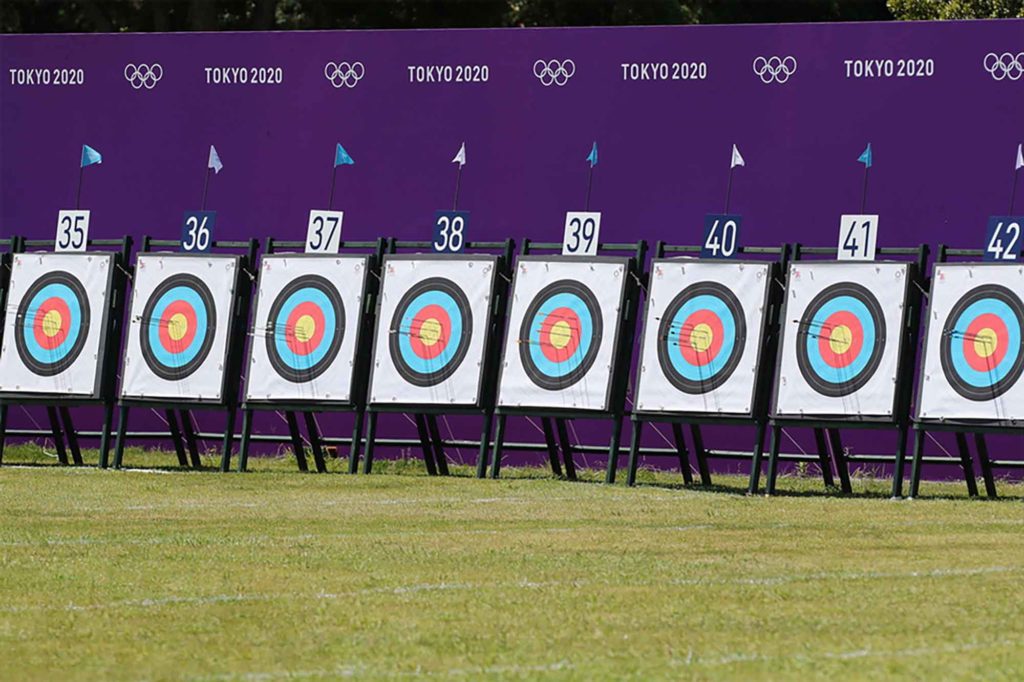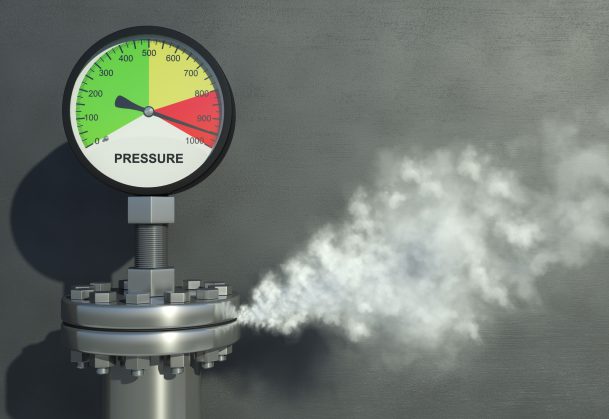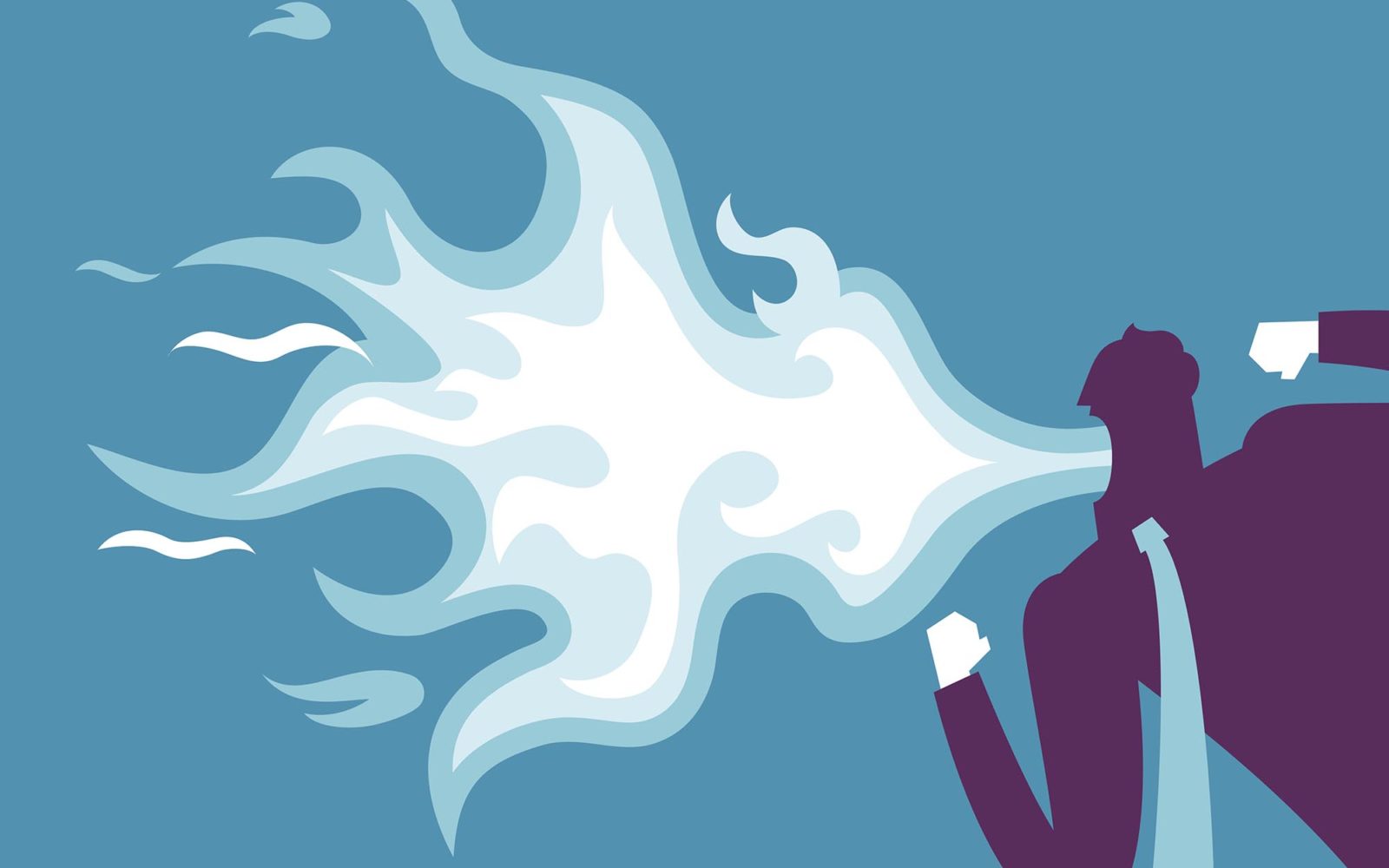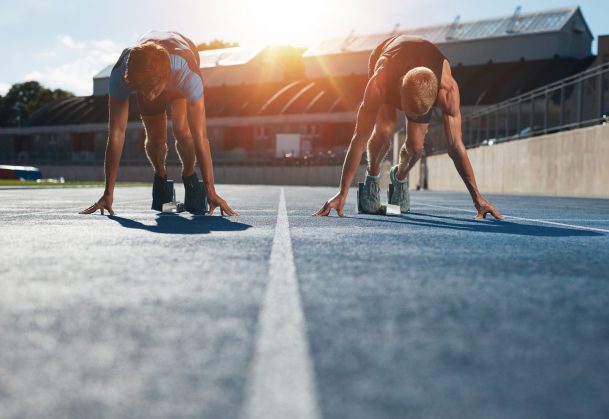Psychological Stress Impedes Performance, Even for Olympic Athletes

Image above: MojNews, CC BY 4.0, via Wikimedia Commons
The 2020 Tokyo Olympics were unique not just for taking place during the COVID-19 pandemic but for being the first athletic event to measure and broadcast competitors’ heart rates as world-class archers took a shot at Olympic gold. Analysis of these biometric data by Yunfeng Lu (Nanjing University) and Songfa Zhong (National University of Singapore, New York University Abu Dhabi) in Psychological Science provides empirical support for something sports fans have long suspected: When athletes feel the pressure, their performance suffers.
“We found that high contactless real-time heart rate is associated with poor performance,” said Lu and Zhong in an interview. “This suggests that even the best professional athletes are negatively influenced by psychological stress, even though they are generally well trained to cope with pressure.”
Olympic archery includes several types of individual and team-based competitions, but for this study, Lu and Zhong focused on within-gender individual competitions for which heart-rate data were available. During these competitions, the heart rates of 122 male and female archers were broadcast as they took 2,247 shots. The World Archery Federation, in collaboration with Panasonic, measured athletes’ heart rates using high-frame-rate cameras that are designed to detect skin reflectance and can determine a person’s heart rate 96% as accurately as a pulse oximeter or electrocardiogram.
During each match, individual archers shot a set number of arrows at a target, with a 20-s time limit for each shot. Archers could earn a maximum of 10 points for a perfect bulls-eye shot, with points decreasing the farther an arrow landed from the center of the target.
Lu and Zhong found that athletes whose heart rates were higher before taking a shot consistently scored lower on those shots. While archers’ age and gender were not found to significantly influence the relationship between stress and performance, a number of factors related to the nature of the competition did.
Increased heart rate was more likely to reduce the performance of lower-ranking archers and of all archers who shot second in a match or who had a lower score than their opponent at that point in the match. There was also a stronger relationship between stress and performance closer to the end of each match, possibly due to the increase in pressure as athletes progressed in the competition, the authors wrote.
“Elite athletes usually receive training to manage psychological stress, but our results suggest that they continue to be subject to the influence of psychological stress,” wrote Lu and Zhong.
In addition to offering evidence for the link between stress and performance in a real-life setting, this research demonstrates that heart rate captured by high-frame-rate cameras can serve as a reliable source of biometric data, according to Lu and Zhong, particularly in situations like the COVID-19 pandemic in which researchers and participants may be unable to meet in person.
“This method could become increasingly important in diverse settings, ranging from sports and business to mental health and medicine,” the researchers wrote. “In this regard, our study can be viewed as a proof of concept by showing that contactless real-time heart rates captured psychological stress.”
In future work, this technology could be used to observe how psychological stress influences athletic performance across different sports, Lu and Zhong said. The researchers would also like to further investigate how contactless real-time heart rate can be incorporated into behavioral studies in laboratory and field settings.
Feedback on this article? Email [email protected] or login to comment. Interested in writing for us? Read our contributor guidelines.
Reference
Lu, Y., & Zhong, S. (2023). Contactless real-time heart rate predicts the performance of elite athletes: Evidence from Tokyo 2020 Olympic archery competition. Psychological Science. https://journals.sagepub.com/doi/10.1177/09567976221143127
Related research on competition
-

Why Do Some Athletes Choke Under Pressure?
Athletes know they should just do their thing on the 18th hole, or during the penalty shootout, or when they’re taking a 3-point shot in the last moments of the game. But when that shot
-

Ruthless Competition, Top-Dog Cultures, and Too Few Women
An organizational emphasis on intellectual superiority can contribute to a “masculinity-contest culture” that may discourage women from jumping in.
-

The Upside of Rivalry: Higher Motivation, Better Performance
How do great rivalries in sports and business drive the performance of the competitors? A recent study provides some answers.




APS regularly opens certain online articles for discussion on our website. Effective February 2021, you must be a logged-in APS member to post comments. By posting a comment, you agree to our Community Guidelines and the display of your profile information, including your name and affiliation. Any opinions, findings, conclusions, or recommendations present in article comments are those of the writers and do not necessarily reflect the views of APS or the article’s author. For more information, please see our Community Guidelines.
Please login with your APS account to comment.